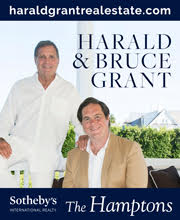Tribeca After the Floods
 Warren Street, his destination, was far into the Marshes, bordering New Venice. Seeing the empty skyscrapers rising from the water, he remembered stories his mother used to tell him about the glittering “city on the sea,” where consumers floated through watery streets on gondola boats and celebrities partied all night in palaces of excess. As a girl, she had experienced it in its full glory, and she had seen its long decline during the Collapse. The city could not afford to maintain the floodgates that made New Venice possible, the national government saw no reason to, and because the Economic Security Act had not yet been enacted, no corporate effort could save them. After the party palaces were gone, consumers still lived downtown, but the celebrities had left, and the romance of a city on the sea gave way to the realities of endless flooding. Some consumers tried to hang onto their luxury apartments, but after the year of three hurricanes, even the most optimistic abandoned the neighborhood.
Warren Street, his destination, was far into the Marshes, bordering New Venice. Seeing the empty skyscrapers rising from the water, he remembered stories his mother used to tell him about the glittering “city on the sea,” where consumers floated through watery streets on gondola boats and celebrities partied all night in palaces of excess. As a girl, she had experienced it in its full glory, and she had seen its long decline during the Collapse. The city could not afford to maintain the floodgates that made New Venice possible, the national government saw no reason to, and because the Economic Security Act had not yet been enacted, no corporate effort could save them. After the party palaces were gone, consumers still lived downtown, but the celebrities had left, and the romance of a city on the sea gave way to the realities of endless flooding. Some consumers tried to hang onto their luxury apartments, but after the year of three hurricanes, even the most optimistic abandoned the neighborhood.
The sun was sinking into a hazy murk when Nelson found an ancient sign for Warren Street. Rows of brick buildings with crumbling facades lined the street, with no sign of life other than some crude rowboats and rafts chained to doorposts. The storefronts were boarded up, covered with decades-old graffiti and posters. He picked his way along the remnants of a sidewalk strewn with tidal detritus. He could smell the sea; pools of it collected in the potholes of the street. He found a hand-painted white “28” next to a dark entranceway. He lingered a while, straining to see inside. Faint music sounded. The girl had said her so-called studio was on the third floor. He took a deep breath and stepped into the darkness.
•••••••••••••••
 The above is an excerpt from Happiness Ltd., a new novel by a local writer using the pen name Michael McGhee. (For reasons that will soon become clear, his employer might prefer not to be affiliated with it….) It’s a dark comedy that imagines our world as a corporate state. The action shifts between the heavily policed canyons of Midtown and the lawless marshes of hurricane-ravaged Tribeca. Two young lovers make a run for freedom and find themselves on trial for economic terrorism. Publishers Weekly called it “a highly original and gripping novel”—buy it from the publisher or elsewhere!
The above is an excerpt from Happiness Ltd., a new novel by a local writer using the pen name Michael McGhee. (For reasons that will soon become clear, his employer might prefer not to be affiliated with it….) It’s a dark comedy that imagines our world as a corporate state. The action shifts between the heavily policed canyons of Midtown and the lawless marshes of hurricane-ravaged Tribeca. Two young lovers make a run for freedom and find themselves on trial for economic terrorism. Publishers Weekly called it “a highly original and gripping novel”—buy it from the publisher or elsewhere!
How did the idea for Happiness Ltd. come about?
It goes back to 2003, when my wife and I moved to Murray Street because the city was offering subsidies to anyone who would live south of Chambers, to speed downtown’s recovery from 9/11. It was a strange place and time. In Washington, Congress was writing the Patriot Act and creating the surveillance operations that Edward Snowden would later expose. At night I would walk our dog around Ground Zero, where phalanxes of soldiers stood guard with machine guns. You could still see the slurry wall that held back the seawater after the towers collapsed. Yet at the same time, Tribeca was bouncing back with trendy little restaurants and bars. It felt like we were partying at the end of the world. These strange juxtapositions gave me the idea for a novel set in Manhattan in the not-distant future, where the sea levels are rising and today’s corporate state has become an outright police state, yet the city remains a crazy unmanageable stew where the super-wealthy live side by side with the destitute, and where love or mayhem can break out at any time.
Did Hurricane Sandy affect what you wrote?
Actually I had finished the novel before Sandy, so it didn’t affect the writing at all, but it certainly helped sell the book. Before Sandy, I was having trouble getting any publisher’s attention. After Sandy, I simply began my pitch letters with “Happiness Ltd. takes place in hurricane-ravaged Manhattan…” and I found a publisher pretty quickly. Living through Sandy, however, was a flashback to those post 9/11 days. On the one hand it was a tragic event that destroyed lives and livelihoods. On the other hand, it brought out the best in New Yorkers: strangers talking to each other on the streets; sharing information; neighbors helping each other out. My wife and I had a tough week without electricity or heat, but we were lucky to have cold water and a working gas stove, so we got by.
The passage you chose as an excerpt suggests you don’t view the gentrification of Tribeca (and Manhattan, and New York City…), in a positive light.
I think a little gentrification can be a fine thing if it makes a neighborhood safer, or brings nice grocery stores where there were none. But our city’s wild-west, no-limits gentrification that allows developers to build oversized luxury towers on any sliver of land is insane. Our elected officials are letting the developers destroy what makes this a desirable place to live. However, my idea of hurricanes and rising sea levels taking back lower Manhattan is not some sort of revenge fantasy. It’s just realistic. I think the developers are building a “New Venice” without knowing it.
Have you written about the area before?
Not about Tribeca or lower Manhattan per se, but from 1989 through 1999 I worked in the World Trade Center for a trade magazine covering Wall Street. Wandering the streets on my lunch breaks and hitting Tribeca bars after work is how I came to love the area.
Are there people in the book inspired by real locals? Settings inspired by local businesses?
All the characters are completely fictional. But the decrepit walk-up on Warren Street, where my heroine Celia lives in a commune, was inspired by the wonderfully funky Kula Yoga studio at 28 Warren. The studio opened around the same time that my wife and I moved to Tribeca, and we were regulars. It attracted all types of people, young and old, from different backgrounds. In Happiness Ltd., I needed to show why Celia would prefer to live in the crumbling marshlands of Tribeca rather than the sterile environment uptown, and this community is her reason.


















